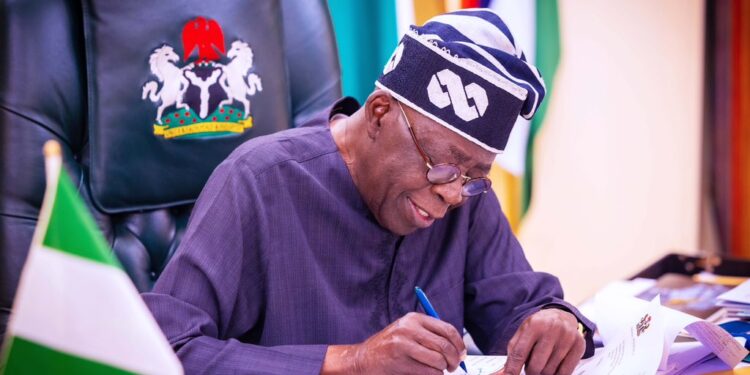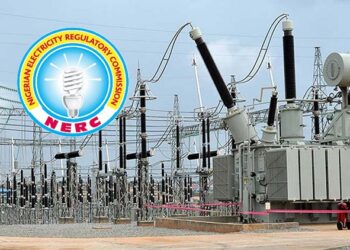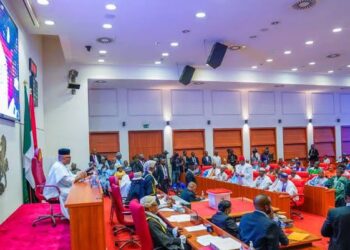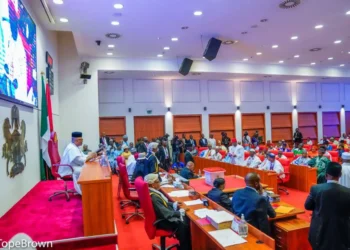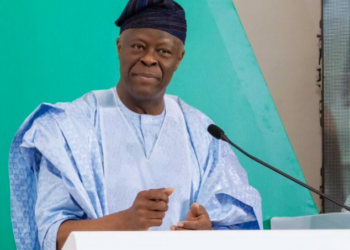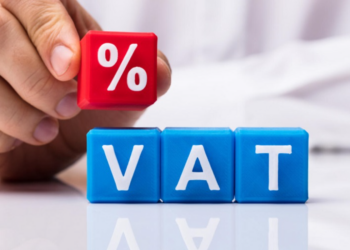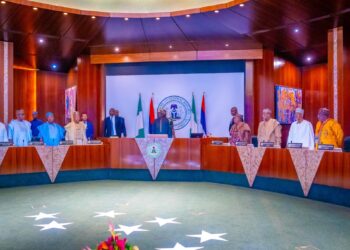The federal government is targeting that corporate Nigeria will earn a combined gross operating profit of N9.3 trillion in 2024 and from there will be able to generate a company’s income tax revenue of N3 trillion in 2024 up from N1.9 trillion budgeted for 2023.
This was contained in the Medium Term Expenditure framework released by the federal government during the week.
The government also targeted a total of N20.69 trillion in the Net Federal Account revenue pool, which is money divided up between the FG, States, LGA, National Assembly, and Judiciary. (See image below)
Corporate Taxes
However, of note was the government’s N3 trillion plan for corporate taxes which is also expected to grow to N3.3 trillion by 2025 and N3.7 trillion by 2026.
The government claims it derived the N3 trillion by estimating a gross operating profit of N9.3 trillion in 2024 out of which it will tax 30% as company income tax.
- “The CIT projections are based on estimated nominal GDP, Companies’ Profitability Ratio, and a further improvement in collection efficiency.”
- “The Gross Operating Profits of firms for which CIT forecast was derived is assumed to average N9.3 trillion for 2024, 10.6 trillion for 2025 and 11.2 trillion for 2026, after adjusting for firms in the informal sector.”
- “Estimates were derived taking into consideration significant growth of domestic economic activities as well as the effective implementation of the National Development Plan 2021-2025.”
- “Other important assumptions include significant improvement in the Nigerian business and investment environment and successful broadening of the tax net. More importantly, the historical growth in the volume of online transactions is expected to be sustained.”
This assumes that the government expects corporate profits to keep growing despite harsh economic conditions that have threatened to impact profits from the real sector.
However, data from the first 7 months of the 2023 budget performance indicate the government earned an aggregate revenue of N1.1 trillion from corporate income tax compared to the N544.41 billion target. When annualized this translates to about N2.2 trillion.
It appears the government will be considering the increase in the tax net in addition to the expectation of higher profits.
VAT
The government is also projecting a VAT revenue of N3.6 trillion an increase from N2,7 trillion budgeted for 2023. This is based on an increase in consumption expenditure.
- Consumption expenditure on which VAT is charged is assumed to increase from an average of N35 trillion in 2024, to N40 trillion in 2025 and N45 trillion in 2026, after adjusting for exemptions, zero rated items and companies whose turnover fall below the N25 million threshold.
- Like the CIT, more VAT payers are expected to be brought
into the tax net with the effective implementation of the provisions of the various Finance Acts. The VAT projections over the medium-term are based on holding the rate at 7.5%. - Raising the VAT rate however remains a policy option for government to keep in view over the medium
Tax expectations
Meanwhile, the Chairman, of the Presidential Committee on Fiscal Policy and Tax Reforms, Taiwo Oyedele has revealed that the administration of President Bola Tinubu would not impose higher tax rates on Nigerians.
Mr Taiwo said that the objective of the committee is to reduce the number of taxes and levies imposed on Nigerians. He said there is no plan to increase taxes, rather the committee would “harmonise revenue collection” to reduce the tax burden. He said:
- “We do not intend to introduce new taxes or impose higher tax rates. Rather, our mandate is to reduce the number of taxes and levies while harmonising revenue collection to reduce the burden on the people and businesses. The objective is to avoid taxing investment, capital, production or poverty. We plan to review and re-enact the major tax laws in a holistic manner thereby limiting the necessity for frequent changes through annual finance acts.”
President Tinubu during the inauguration of the Presidential Committee on Fiscal Policy and Tax Reforms which Mr. Taiwo Oyedele heads, had tasked the committee to enhance Nigeria’s revenue generation and business environment, as the FG aims to achieve an 18% Tax-to-GDP ratio within 3 years.

